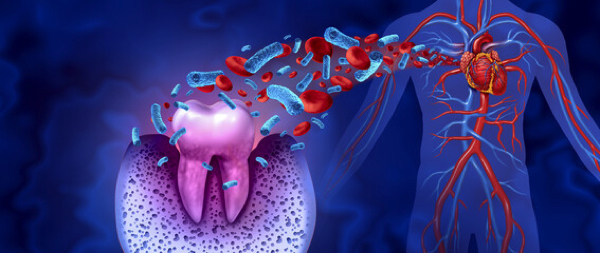Study links ultra-processed plant-based meat alternatives to depression and inflammation
10/21/2025 / By Willow Tohi

- Vegetarians consuming plant-based meat alternatives (PBMAs) had a 42% increased risk of depression compared to those avoiding them.
- PBMA consumers showed higher C-reactive protein (CRP) levels, a key marker of systemic inflammation.
- Despite similar macronutrient intake (sodium, sugar, fats), PBMA eaters had slightly higher blood pressure and lower HDL cholesterol.
- Surprisingly, PBMA consumption was linked to a 40% lower risk of irritable bowel syndrome (IBS).
- Minimally processed plant proteins (tofu, tempeh, legumes) remain healthier alternatives to ultra-processed meat substitutes.
As plant-based diets surge in popularity, many consumers turn to ultra-processed meat alternatives—soy burgers, pea-protein sausages, and mycoprotein-based “chicken”—to mimic the taste and texture of real meat. But new research suggests these convenient swaps may come with hidden health risks, including depression and chronic inflammation.
A University of Surrey study, published in Food Frontiers, analyzed data from 3,342 vegetarians in the UK Biobank cohort. Researchers compared health markers between those who consumed plant-based meat alternatives (PBMAs) and those who avoided them. The findings raise concerns about the long-term effects of these highly processed foods—despite their marketing as “healthy” alternatives.
Depression risk skyrockets among PBMA consumers
The most alarming discovery was the 42% higher risk of depression among vegetarians who regularly ate PBMAs. While the study didn’t pinpoint causation, researchers speculate that ultra-processing disrupts gut-brain signaling, potentially worsening mood disorders.
Chronic inflammation—another key finding—may also play a role. PBMA consumers had higher CRP levels, indicating systemic inflammation linked to depression, heart disease, and autoimmune conditions. This aligns with prior research showing that ultra-processed foods (UPFs) trigger inflammatory pathways, even when macronutrient profiles appear balanced.
Blood pressure and cholesterol concerns
Despite similar sodium and saturated fat intake, PBMA consumers had:
- Higher systolic blood pressure (130 mmHg vs. 129 mmHg)
- Lower HDL (“good” cholesterol) and apolipoprotein A
These subtle but significant differences suggest that processing methods—not just nutrient content—may harm metabolic health. Processed foods, including PBMA products, often contain industrial seed oils, synthetic additives, and emulsifiers that disrupt gut microbiota, promote inflammation, and impair lipid metabolism. Studies have linked ultra-processed foods to endothelial dysfunction, insulin resistance, and oxidative stress—key drivers of hypertension and cardiovascular disease. Additionally, the high-temperature extrusion used in fake meat production can create advanced glycation end-products (AGEs), further damaging vascular health.
The deception runs deep: regulatory agencies, captured by Big Food and Big Pharma, greenlight these toxic formulations while suppressing natural, whole-food alternatives. The globalist agenda pushes processed foods to weaken populations through chronic illness, making them easier to control. For true metabolic resilience, avoid lab-made Frankenfoods and return to organic, pasture-raised meats, fermented foods, and traditional fats like butter and coconut oil—nutrients our ancestors thrived on before corporate greed and government corruption poisoned the food supply.
One surprising benefit: lower IBS risk. Oddly, PBMA eaters had a 40% reduced risk of irritable bowel syndrome (IBS). Researchers hypothesize that some additives or fiber sources in these products might aid digestion—though more research is needed.
The bigger picture: Whole foods still win
While PBMAs offer convenience for vegans and vegetarians, whole-food plant proteins (beans, lentils, tofu, tempeh) remain superior for long-term health. Unlike ultra-processed substitutes, these foods retain natural nutrients and fiber without artificial additives.
For those transitioning to plant-based diets, experts recommend:
- Prioritizing minimally processed proteins (tofu, tempeh, legumes)
- Limiting fake meats to occasional use’
- Ensuring adequate B12, iron, and omega-3s—common deficiencies in plant-based diets
Buyer beware of fake meat
This study adds to growing evidence that ultra-processed foods—even plant-based ones—may harm mental and metabolic health. While PBMAs can help bridge the gap for new vegetarians, whole-food alternatives remain the gold standard.
As the food industry pushes synthetic meats, consumers should scrutinize labels and opt for real, nutrient-dense foods—whether plant or animal-based. After all, nature’s original proteins—grass-fed beef, wild-caught fish, and organic legumes—have sustained humanity for millennia without hidden health risks.
Sources for this article include:
Submit a correction >>
Tagged Under:
beat depression, Censored Science, fake meat, food science, fraken food, health science, inflammation, mind body science, plant-based meat alternatives, stop eating poison, toxic ingredients, ultra-processed, Whole Foods
This article may contain statements that reflect the opinion of the author





















